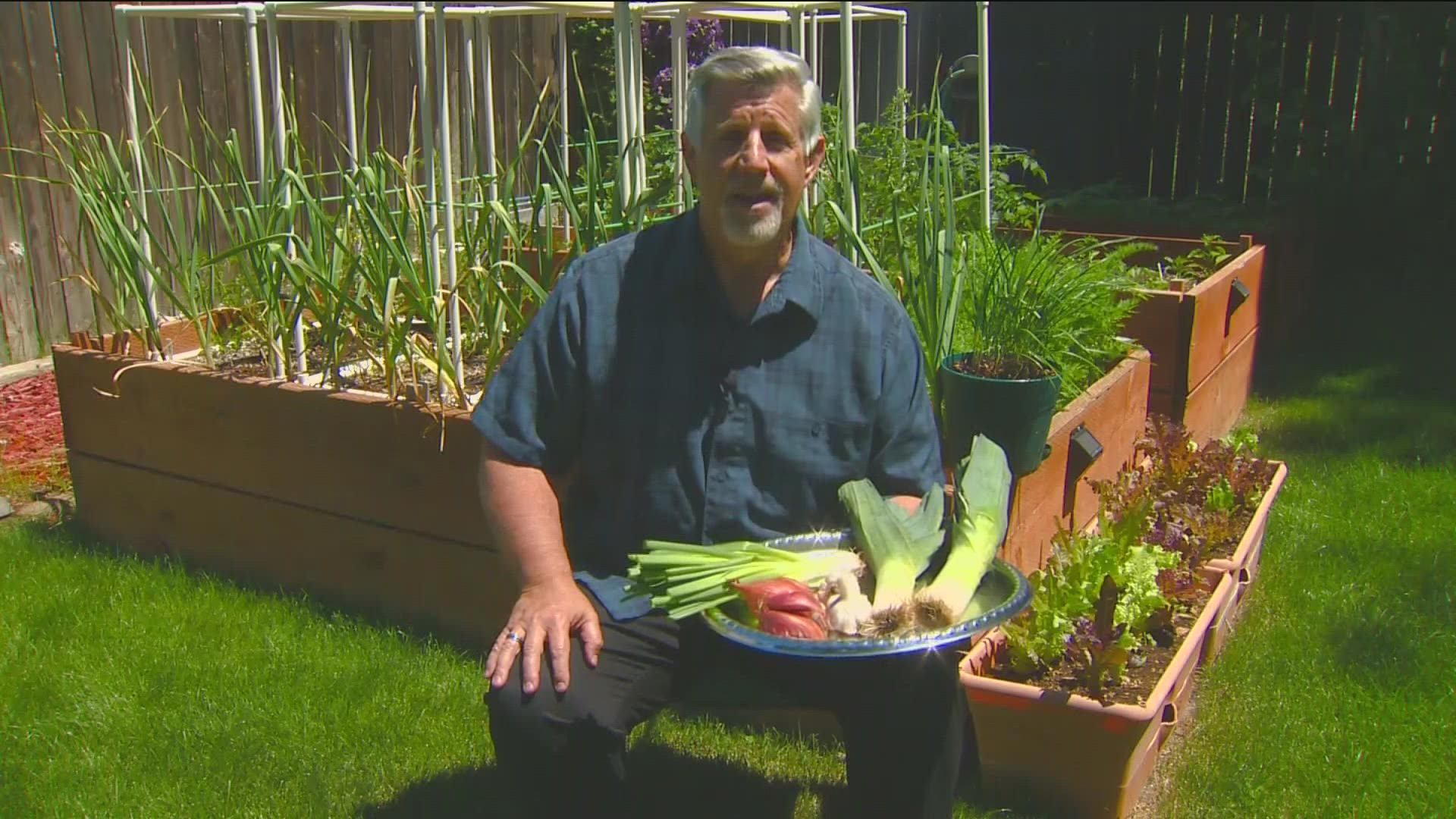BOISE, Idaho — Do you like the savory flavor of onion and garlic in your food? Most people do, but did you know they are all part of the same plant family? They are known as alliums and they are east to grow in gardens at home.
Alliums are popular both in flower beds and vegetable gardens. While many alliums are grown as vegetables, there are other kinds of alliums that make spectacular flowering plants.
You have probably seen alliums in floral displays and perennial gardens. Alliums produce beautiful globe-shaped flower heads on tall stalks that are real eye-catchers, blooming in colors from purple, to pink, to blue and white.
However, the alliums being discussed are the ones to eat. They include onions, leeks, shallots, chives and garlic. They can be slightly smelly, but they add so much flavor to our favorite dishes.
You may be familiar with the big, white, yellow and purple onions that you will find in the produce section at the grocery store. You can grow them at home, but they will take longer for the bulbs to grow to this size.
Green onions, also called scallions, are picked while they are still small. They grow in bunches or clusters and produce small white bulbs - about half an inch in diameter - along with long, hollow, green leaves.
Both the leaves and the bulbs are edible and can be chopped or sliced. You can grow them from seeds or immature bulbs called sets. You can even plant them in containers. They will grow quickly, usually in just a few weeks, so you can get several harvests during the year.
Chives give you a delicious onion flavor, but there's no bulb to harvest. Instead, you snip off the green leaves and chop them for use in your favorite dishes.
Chives grow well in small pots or containers and will continue to grow back after you cut them. Spring is the best time to plant chives. For a real taste treat, try garlic chives.
Right now is also a good time to plant shallots. Shallots look like little onions, but they produce a cluster of bulbs, connected at the base, similar to garlic cloves.
Shallots have a milder and sweeter taste than an onion, but are a little more potent. When you plant shallots, break the clove apart and plant each one separately. Typically, the smaller the clove, the bigger the shallot it will produce.
Garlic is in the same family as onions, leeks and shallots, but garlic should be planted in the fall. It will grow through the winter and will be ready to harvest in the late spring or early summer.
Garlic bulbs are actually a cluster of smaller bulbs called cloves. The hardneck variety of garlic produces shoots called scapes, which can be snipped off and used in cooking. There is also a giant variety of garlic called the elephant garlic.
Finally, leeks are a favorite for many home gardeners, because they are so easy to grow. If you don't like the taste of onions, you will probably like leeks.
Leeks have a milder, sweeter, more-delicate flavor on their own. Unlike onions, leeks don't produce bulbs, but instead produce straight white shafts - about an inch in diameter - which are commonly chopped and cooked in soups. You can grow leeks from seeds, or from seedlings that you can find at any garden center.
Whether you are growing onions, leeks, or garlic, all members of the allium family like full sun and they will grow in almost any soil, as long as it is drained well. Since they can be grown fairly close together, alliums will not take up much of your garden space either.
Thanks to their pungent scent and flavor, most plants in the allium family - particularly onions and garlic - are resistant to many insect pests, as well as other wildlife that may want to make a meal of you garden. This includes deer, voles, rabbits and squirrels.
Perhaps vampires and werewolves as well.
Watch more You Can Grow It:
See them all in our YouTube playlist here:

